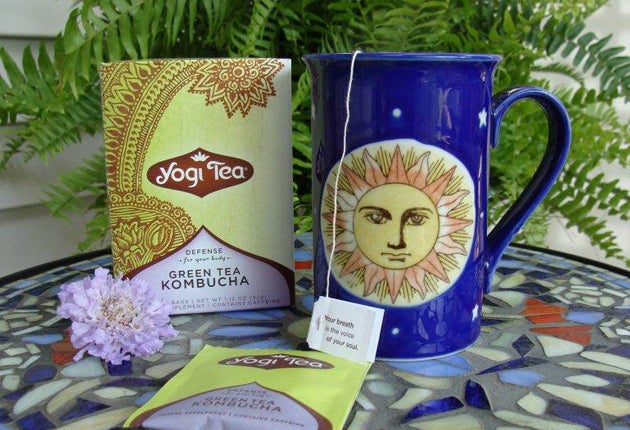Trouble brewing over 'tea of the gods'
Some claim kombucha fights cancer and arthritis, others say it's toxic. And it's about to arrive here

Your support helps us to tell the story
From reproductive rights to climate change to Big Tech, The Independent is on the ground when the story is developing. Whether it's investigating the financials of Elon Musk's pro-Trump PAC or producing our latest documentary, 'The A Word', which shines a light on the American women fighting for reproductive rights, we know how important it is to parse out the facts from the messaging.
At such a critical moment in US history, we need reporters on the ground. Your donation allows us to keep sending journalists to speak to both sides of the story.
The Independent is trusted by Americans across the entire political spectrum. And unlike many other quality news outlets, we choose not to lock Americans out of our reporting and analysis with paywalls. We believe quality journalism should be available to everyone, paid for by those who can afford it.
Your support makes all the difference.It is billed as the ultimate elixir of health and beauty, promising everything from lower blood pressure to smoother skin and a smaller waistline. Now kombucha tea, drink of gods and emperors, not to mention celebrities such as Lindsay Lohan, Halle Berry and Anna Paquin – is winning over Britain.
The drink, a fermented tea made from a blend of bacterial culture and yeast mixed with green or black tea and boiling water, is credited by proponents with health benefits ranging from aiding cancer recovery, improving failing eyesight, combating arthritis and helping digestion. Critics insist the claims are unproven and the drink could be harmful.
Despite a recent controversy in which the soft drink was withdrawn from US stores for containing alcohol – it was even rumoured to have set off Lindsay Lohan's alcohol monitoring bracelet – two new versions will hit high streets next month. Britain's biggest kombucha maker, Gaia, will also begin a nationwide marketing campaign in September, when it launches its new drink.
Known as mushroom tea due to the cloud of bacteria that forms as the mixture of tea, yeast, sugar and bacterial cultures ferment, kombucha is thought to have been first consumed around 220BC by the Chinese, who believed it had magical powers.
Retailers hope the drink will tap into the popularity of probiotics, tiny organisms which may be beneficial to health when mixed with yogurt and other dietary supplements. By stressing its antioxidant properties in its marketing, US manufacturers succeeded in selling an estimated $150m (£97.5m) of kombucha last year.
"It is very good for the immune system, mostly because of its probiotic activity in the intestinal tract. It is a live product and is very unpredictable – you can't predict what's going to happen," Alick Bartholomew, director of the Kombucha Tea Network, said.
However, there have also been reports of drinkers suffering stomach upsets, allergic reactions and lead poisoning. "Until more is known about both the health benefits and harmful effects surrounding this type of tea, consumption should be viewed with caution," said Dr Emma Williams of the British Nutrition Foundation. "There is little scientific evidence available in the literature to support the beneficial effects of this tea."
Not content with purchasing the drink, its supporters claim that increasing numbers of Britons are seeking to brew their own kombucha at home. "There have been more inquiries over the past few months from people wanting to know how to make it," Mr Bartholomew said.
The tea, which has an acidic taste and is often sweetened by manufacturers, can be made by putting kombucha cultures and sugar in tea, covering it with a muslin cloth and leaving it in a warm spot for a week.
Analysts are watching kombucha's attempt to win over the British public with interest. While the drink's price alone will put off some consumers – Gaia kombucha costs £4.99 for a 750ml bottle – the market research company Mintel predicts that the UK's £105m-a-year premium soft drink market will grow by £25m over the next five years, with products containing exclusively natural ingredients faring particularly well.
Others remain unconvinced. Alex Beckett, food and drink editor of The Grocer, said: "You go to fine food shows and there is a wealth of fancy, functional tea, but they are not mainstream yet. They aren't investing in marketing, and they are pricey because the ingredients are expensive."
Join our commenting forum
Join thought-provoking conversations, follow other Independent readers and see their replies
Comments